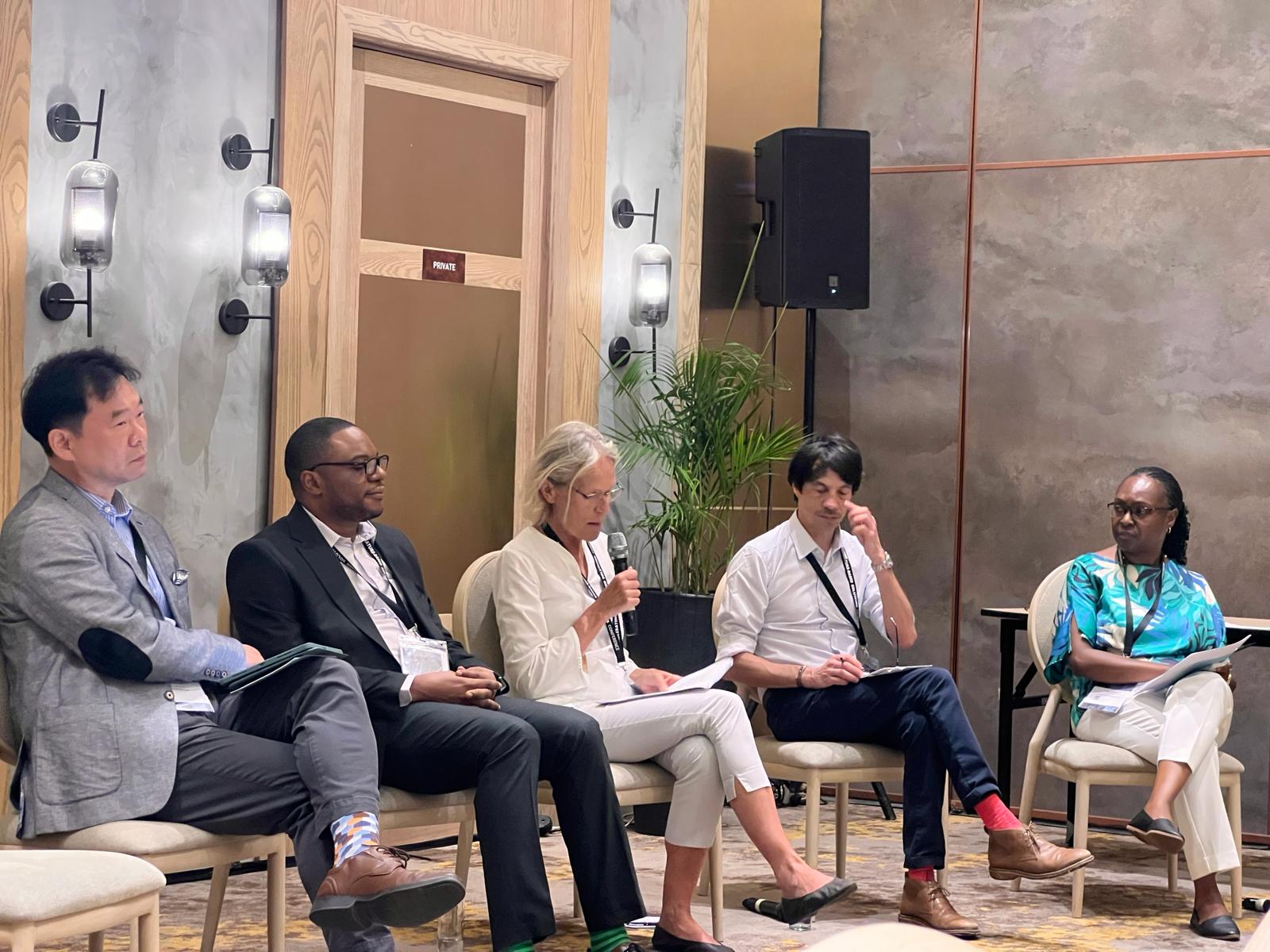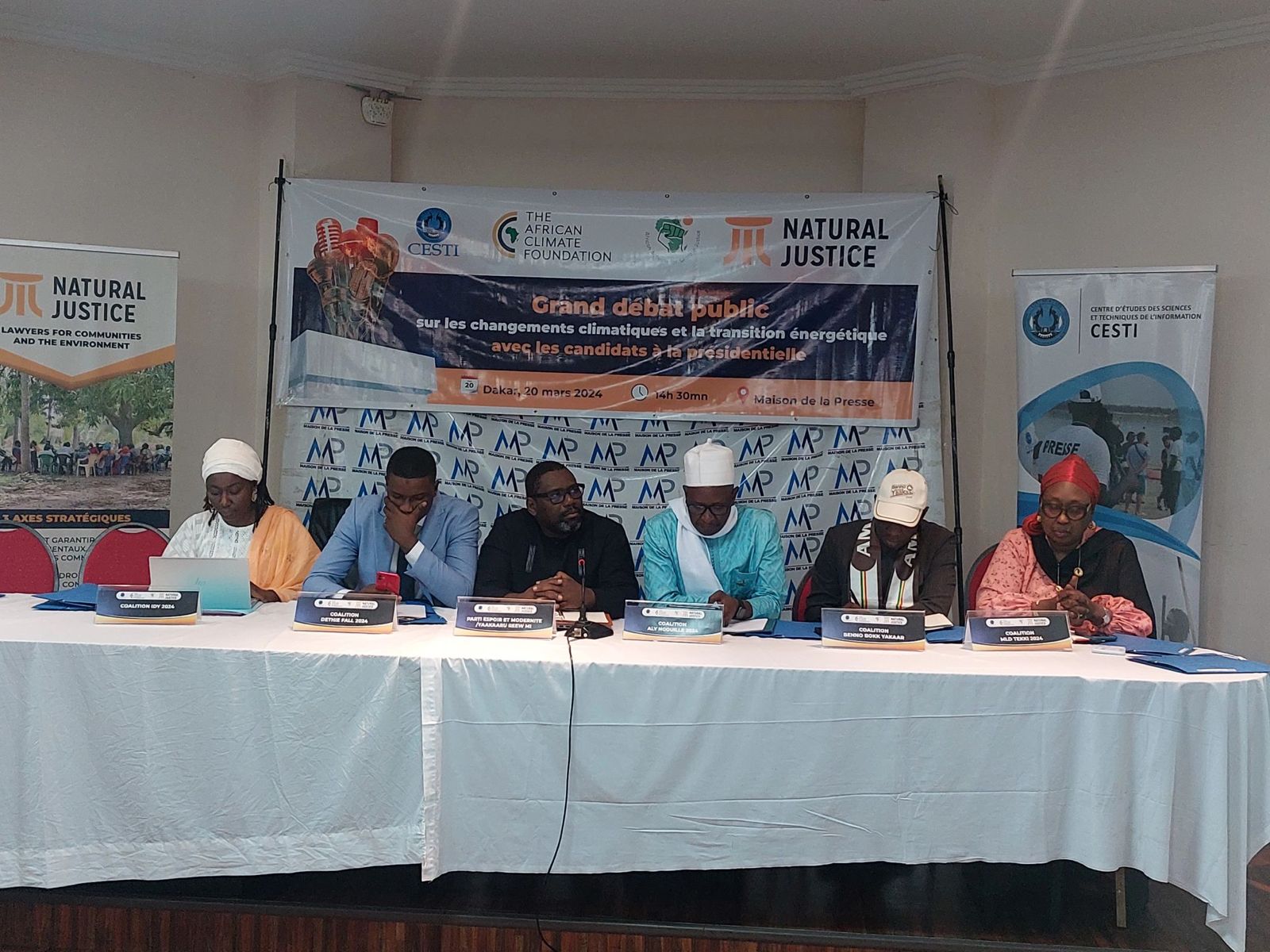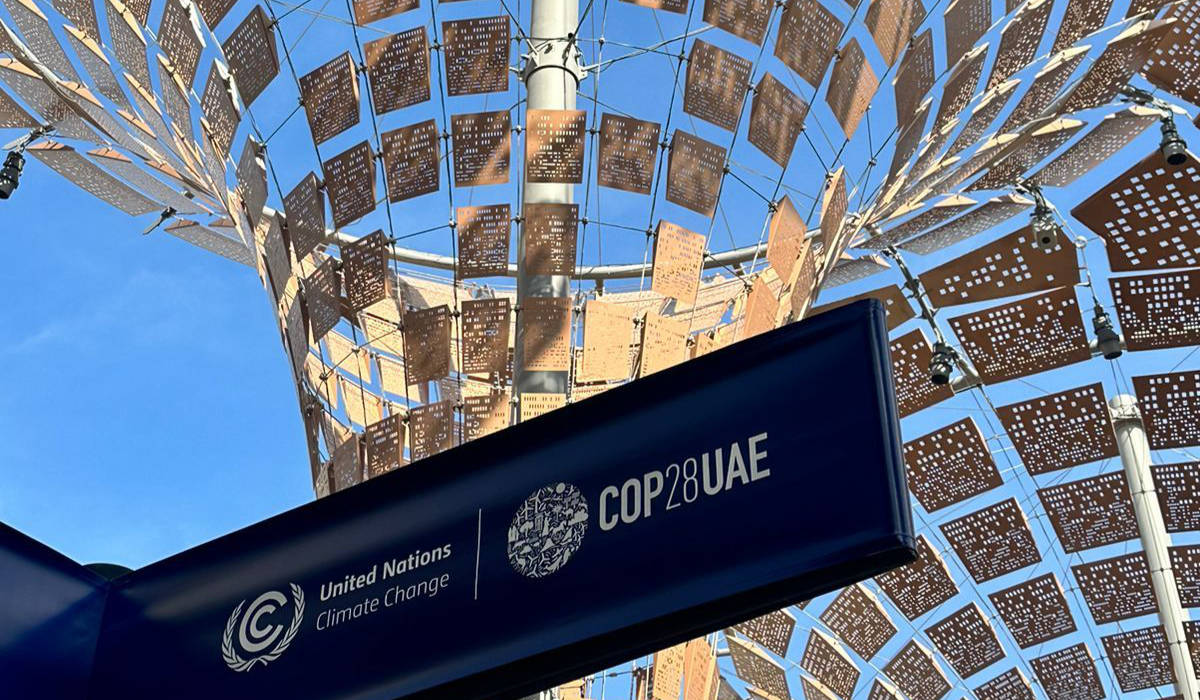Africa is historically a marginal contributor to greenhouse gas emissions, but it is already paying the price for the changing climate patterns. Climate change threatens to expose up to 118 million of the poorest Africans to major drought, massive floods, and extreme heat by 2030.
Africa’s special circumstances are pivotal in charting a way forward for a just transition, both in policy and finance, Africa Climate Week in Gabon heard this week. The continent’s transition cannot be forced by the whims of the developing world’s climate action plans.
Fair and inclusive
Africa’s transition must be just, done in such a way that it is fair and inclusive, and creates new opportunities for African economies, climate delegates pointed out.
More than 1200 delegates, including representatives from the African Climate Foundation, attended Africa Climate Week in Libreville, Gabon where especially climate investment in the continent and a just transition was top of mind. The week focused on the special circumstances of Africa in facing climate change. Africa Climate Week is a crucial step on the road to COP27 – called the African COP – that will be held in Egypt in November.
Africa’s just transition will require planning and special dedicated finance vehicles, a panel on Africa’s just transition heard at the conference. And international climate action did not always transcend into just climate action for the continent.
The African Climate Foundation’s senior advisor on climate diplomacy and geopolitics Faten Aggad, who participated during a number of Africa Climate Week side events, warned, “the just transition is not just a deliverable or a box-ticking exercise” and that it will be a journey that requires careful planning.
“It’s a process for every country in Africa.”
This journey will take time. Part of ensuring success is to secure consensus among domestic actors in the different countries and ensure inclusivity, especially in vulnerable communities that will be hardest hit.
A question of adequate finance
“The question of finance needs to be considered,” she said.
The African Development Bank’s 2022 Africa Economic Outlook report projects that Africa will need as much as $1.6 trillion between 2020-2030 to implement its climate action commitments and NDCs. Resources, as per the NDC, would target projects in several sectors, including energy and climate-resilient agriculture, among others.
Only a fraction of that money, however, has been made available with rich countries failing to meet their $100bn-a-year pledge, and discussions at Africa Climate Week focused on mobilising these much-needed climate funds.
Special fit-for-purpose funds
Aggad also emphasised that it was critical to consider the “need for a fit-for-purpose financing model for Africa,” with funds working specially for the function it was created for. This, she believed, was a critical step towards a just transition.
“The nature of the finance needs to be right. It needs to be fit for purpose, additional and competitive.”
The nature of the finance also needs to be right, and the risks should be weighed about accepting loans from an international financial institution (IFI). Aggad was also concerned about the significant gap between commitments and disbursement, as shown by the Climate Finance Delivery Report.
Leapfrogging
With new technologies available, Africa could leapfrog over old pathways to a new green future. But it was crucial that African countries start considering future energy systems now, the panel heard.
Leapfrogging was possible at this point with some purposes such as energy access for households, but not yet for large-scale industrial activities, Aggad said. The question that Africa had to consider was how we could start already rolling out some of these available systems at scale and affordably.
Delegates also heard that access to technologies will be critical. This will require debates that transcend the current climate talks, Aggad indicated.
Special South Africa
In coal dependant South Africa, also Africa’s biggest emitters, the need for change is especially urgent with a just transition top of mind. But Aggad pointed out that South Africa is a special case because of its emissions profile.
“But that is not the case for most African countries. Emissions profiles should not be the key determinants,” she said. “It is about the pattern and opportunities that these countries present for a future solution to climate change. Also, while one country might focus on energy, another might want to focus on agriculture as the first step in its just transition program. We need to keep those options open.”
Yet South Africa’s just transition process has pioneered models of transition. It also demonstrated that transition processes can be a catalyst for demand for green finance, so far relatively small on the continent.
Climate action against Africa
International climate action needs to translate into climate justice, and some of the policies might enforce old inequalities. The European Union’s Carbon Border Adjustment Mechanism (CBAM) Carbon adjustment mechanism is one such challenge for Africa.
Bruno Le Maire, French finance minister, representing the French EU presidency, described it as a “victory for European climate policy”, but would force African exporters that do not meet EU-set standards to pay extra for their goods to reach the European market, because of carbon penalties. Combined with the low flow of accessible climate finance to enable a transition, such measures penalise rather than support just transition.
CBAM has become one of the sticking points in climate politics between Europe and Africa, with many analysts believing European climate policies are pushing African countries to a European model of decarbonisation, instead of considering Africa’s unique circumstances and the inequalities between the two continents.



